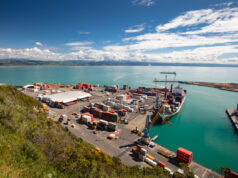The local government sector in New Zealand, as in Australia, faces some real challenges in funding the services it delivers.
In New Zealand, it remains unclear how a national government might assist with funding for local government, especially given the asset intensive nature of local government and its limited ability to raise additional revenues other than increases for ratepayers.
Both of these issues have come up recently in New Zealand, and while they have surfaced in different ways, they both highlight the need for sustainable and equitable funding of local government.
Firstly, Peter Dunne – the former leader of United Future and a minister in both National and Labour Governments – penned an opinion piece in the media on the ratings system.
Dunne made the point that while the system has been criticised by local authorities and ratepayers, and there are doubts about its long term viability, there is no clear alternative on a replacement.
Even so, Dunne said that many local authorities “regard the rating system as past its use-by date.”
“Ratepayers, especially those in asset-rich, cash-poor circumstances, are struggling to meet ever-rising rates demands,” he said.
“The national average rates increase this year is 16%, four times the current inflation rate, although some ratepayers in Wellington face increases of 21.5%.
“Moreover, most of these rates have been struck based on property valuations assessed during the boom a few years ago and are way out-of-line with the actual value of properties today, rubbing further salt into the wound of angry ratepayers.”
So, if property values are an unfair criteria for assessing rates, what is the alternative?
Dunne suggests a system where people are taxed for the services they consume rather than the value of the land they own, but concedes that this sounds simple to apply but is fraught in practice.
He gives the example of Britain during the years of the Thatcher Government, when the proposed “poll tax” brought on a backlash which led to major social conflict and the fall of the Government.
“The upshot of Thatcher’s spectacular political failure in attempting to shift away from funding local government based on land ownership, to a more user-pays basis for local services has meant that since then, no government anywhere has sought to emulate her,” said Dunne.
Taking this off the table, he suggests another option is replacing the current rating system with a uniform national land tax struck annually at 0.5% to 1% of unimproved land value.
“Though this could smooth some of the distortions caused by fluctuating land values in different parts of the country, it would give rise to its own problems in terms of assessment and collection – presumably by the Inland Revenue Department – and subsequent redistribution to local authorities,” said Dunne.
“Nevertheless, it is a solution that has been suggested in various tax reviews over recent years, which may be worthy of further consideration.”
He then goes on to discuss the wider question of greater revenue sharing between the central and local governments, and calls out the situation on the GST in New Zealand.
The GST was introduced in New Zealand in 1986 and originally it was decided that GST collected on rates should be returned back to local government in the form of revenue sharing.
It happened for a year or so but the recession which followed the 1987 share market crash put an end to that, and the practice has never been reinstated.
The result is that the rates system status quo looks set to stay as a necessary evil, and largely because it seems “the best that can be devised in current circumstances.”
This is where Dunne’s article intersects with a report published at around the same time by Local Government New Zealand.
Dunne makes the point that while the central and local government sectors talk about being in a partnership, frustration with the funding model shows that right now there are more challenges than solutions.
LGNZ, for its part, released a report commissioned from think tank NZIER which found that many central government reforms result in increased costs for ratepayers, and the central government did not adequately factor this into their decisions.
The report found that the central government underestimated the cost of its reforms on local governments, many of which had “high sunk costs” which continued even when policies change.
It said that ratepayers are now subsidising supposed ‘cost-recovery’ services like liquor licensing because central government sets these fees, and they haven’t increased for a decade.
True costs are also hidden because councils absorb them by reducing other service delivery.
As a result, LGNZ is calling for the central government to directly address the impact its decisions have on local government – and for councils to be enabled to set their own fees, fines and cost recovery.
“This is an issue that has been many governments in the making, but there is an opportunity for the current government to do something about it,” said Campbell Barry, LGNZ vice president.
He made the point that many councils have set long term plans which prioritise investment and have also worked with communities to find savings.
“However, governments of all stripes have come up with ideas and reforms in Wellington then told councils to deliver on them, which puts pressure on rates outside of our control,” Barry said.
Both Peter Dunne and Campbell Barry call out the unresolved issue in intergovernment relations which is threatening the financial sustainability of the local government sector, while also creating an adversarial relationship with many rate payers.
A partnership between the national and local government sectors is clearly a long way off, but surely now is a good opportunity for reform. Letting the situation drift is to no-one’s benefit.














